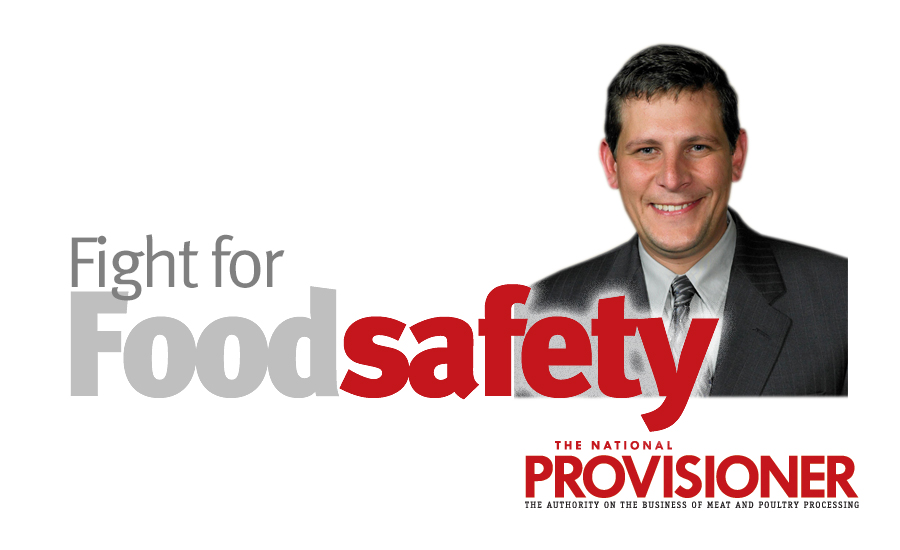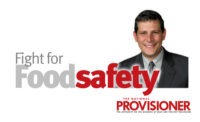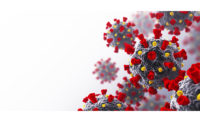There are countless reasons food companies should invest substantial resources to produce a safer product. When companies sell food products that make people sick, it can have a substantial impact on the company’s bottom line. In addition to the inevitable loss of business and scrutiny from regulators, costly litigation will always result. But those aren’t the only consequences companies now face when outbreaks occur. Under the new Human Illness Standard, the U.S. Department of Justice (DOJ) is launching criminal investigations against food companies whenever their products cause an outbreak.
Last month, I participated in a panel at the Food Safety Summit in Rosemont, Ill., with Jeffrey Steger, assistant director of DOJ, Consumer Protection Branch. During his remarks, Steger told the audience that, following any foodborne illness outbreak, the agency is now using criminal investigations as a tool to determine whether there is a basis to bring criminal charges against the company or its employees. This is happening with Blue Bell, Chipotle and Dole, all of which were involved in outbreaks recently.
As part of its efforts, DOJ will subpoena from any company associated with a foodborne illness outbreak all emails and documents relating to the company’s operations, programs and food-safety decisions. Following its internal review of each and every email, document and decision, DOJ will then determine whether to bring misdemeanor charges (which carry up to a year in prison) against the company or any of its employees. Under the federal strict liability criminal standards, misdemeanor charges can be brought even if the food company or its employees had no knowledge they were producing unsafe food.
To protect themselves from a criminal investigation under the new Human Illness Standard, companies should commission a criminal protection audit designed to restructure operational and crisis management programs to better shield them from criminal liability in the event an outbreak occurs. To accomplish this, all food companies should develop decision trees within all their programs that will better enable them to make the most appropriate decision when faced with: (1) product or environmental results that are positive for pathogens; (2) customer or consumer foodborne illness complaints; or (3) notification from FSIS that the company’s products may be linked to illness.
Whenever any of these events occur, there should be exceedingly clear direction in your operational and crisis management programs to guide your company on the most appropriate way to respond. And once these decision trees are created, your company leadership should perform mock crisis training to make sure everyone is on the same page when it comes to executing those decisions. If drafted with an eye toward the new DOJ criminal standards, then followed closely when a crisis happens, a criminal audit and resulting program revisions can effectively shield your company from criminal liability. NP





Report Abusive Comment